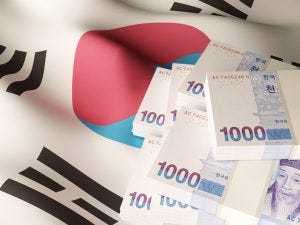January 31, 2019

Three months after production began at its 180,000 L facility, CDMO Samsung BioLogics says it has filled 25% of its capacity.
In October 2018, South Korean contract development and manufacturing organization (CDMO) Samsung BioLogics started commercial production at its third facility located at its Songdo, Incheon site.
The plant has been touted as the world’s largest single biomanufacturing facility, boasting 180,000 L of capacity from 12 15,000 L stainless steel tanks, and according to Samsung BioLogics’ 2018 results, it is already operating at a utilization rate of around a quarter.

Image: iStock/belekekin
“Plant Number 3 has secured 25 percent of its total production capacity and we plan to raise it to 50 percent by the end of the year,” a spokesperson from the company told this publication.
“Our CEO [Tae Han Kim] announced that Samsung BioLogics is negotiating orders with more than 20 companies currently. We are targeting for more than ten additional CDO/CRO orders by the end of this year.”
The site in Songdo also hosts a 30,000 L plant, consisting of six 5,000 L tanks, and a 152,000 L plant run by the CDMO.
For 2018, sales stood at KRW 535.8 billion ($481 million) for Samsung BioLogics, up 71% on the previous year. Operating profit stood at KRW 55.7 billion, down 15.6% due to depreciation cost from operations at the third plant.
Penalties on hold
Samsung BioLogics also received good news after a court in South Korea put on hold penalties issued by the country’s Financial Services Commission (FSC) for suspected accounting irregularities.
Korea’s Securities and Futures Commission (SFC) ruled in November that Samsung BioLogics intentionally violated accounting rules by changing the accounting treatment of its holdings in Samsung Bioepis in 2015.
Samsung BioLogics has denied any wrongdoing, claiming the change to its accounting treatment in 2015 was due to the shift in status of its biosimilar drugmaker Samsung Bioepis from a consolidated to an equity-method subsidiary, and done in accordance with International Financial Reporting Standards (IFRS).
About the Author
You May Also Like




